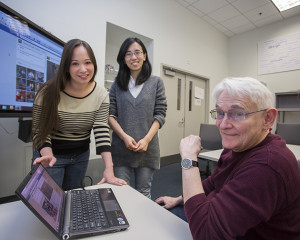May
Selected as a William T. Grant Early Career Scholar
Posted by mw99nd at 10:15 AM. Placed in Professional category
Reducing Digital Inequality by Empowering At-Risk Youth to be Resilient against Online Sexual Predation Risks
I am honored and humbled to announce that I was selected as one of six early career researchers to become the 2018 class of the William T. Grant Scholars Program. We were selected for this prestigious and highly competitive program out of 68 applicants, who were all passionate about reducing inequality in youth outcomes.
My proposed work builds the case that economic factors, ethnic, and racial minority status perpetuate significant digital inequalities, that result in fewer opportunities and more severe online risks for disadvantaged youth, leading to unfavorable outcomes. My research takes a fine-grained approach to identify the underlying micro-level social processes that lead to digital inequalities. It then leverages technology to amplify protective factors, particularly coping responses, that can help youth be more resilient to online sexual predation before they become victims. Empowering at-risk youth to manage online sexual risks more effectively will help them actualize the benefits of internet connectivity by teaching them how to engage online more safely.
I am extremely excited to embark on this journey and work on research that ignites my passion for using technology to benefit those who need it most.









